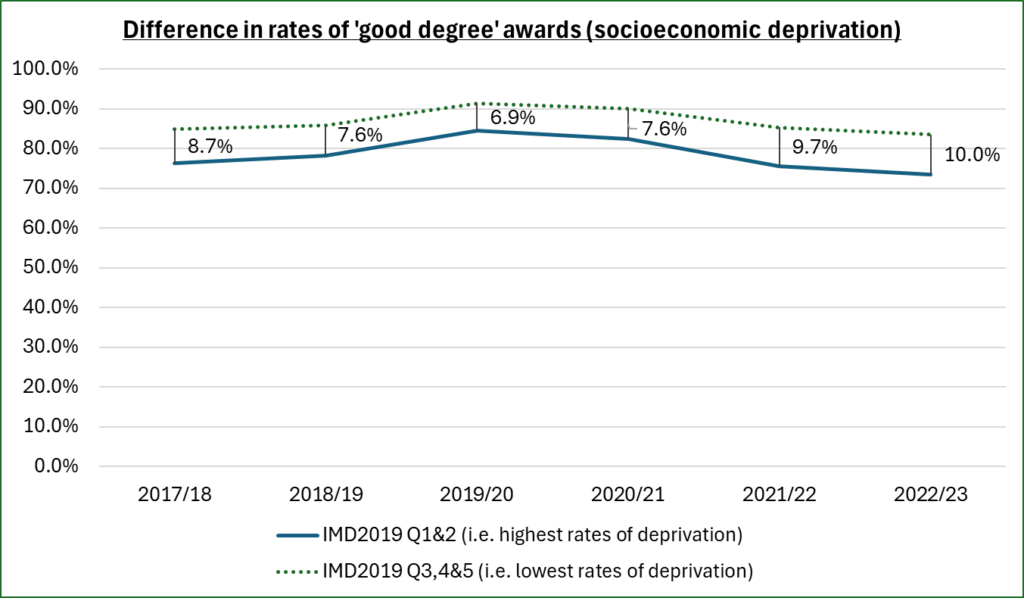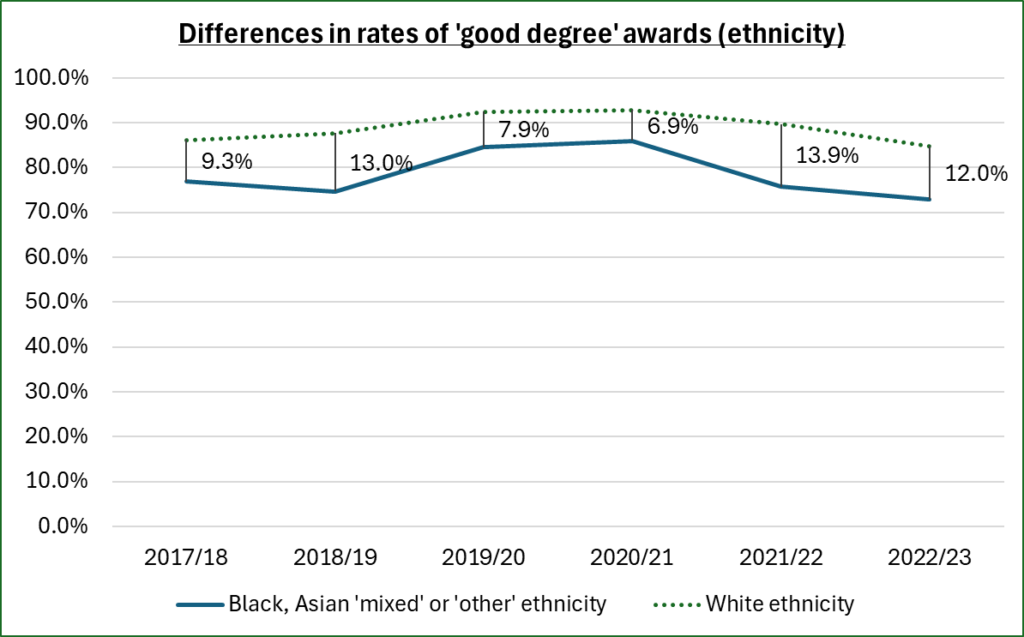Degree outcomes at the University of Reading generally resemble the national picture.
Gap sizes and affected cohorts vary by school and department, however, the student communities prioritised for action at the institution level are:
- Minority ethnic students (with individual targets for Black students).
- Students from socio-economically deprived backgrounds.
Socioeconomic disadvantage

The Indices of Multiple Deprivation (IMD) rank UK postcodes according to levels of deprivation. By analysing students’ home postcodes, we can gain a proxy measure of their socioeconomic background. Other measurements are also used, such as eligibility for Free School Meals and bursary status, which produce similar results.
Ethnicity


Disaggregating ethnicity shows the extent to which Black students are impacted by systemic barriers to success.
Further information
- Local school and department level awarding gap data can be obtained from your school’s Awarding Gap Representative.
- Awarding gaps reduced during the coronavirus pandemic. Potential factors include changes to student experience and more lenient assessment policies. However, robust conclusions about the long-term impact of the coronavirus pandemic are yet to be drawn.
- Intersectional analysis reveals that combining characteristics produces larger gaps.
- Controlling for known factors such as entry qualifications does not wholly explain awarding gaps.
- In contrast with the sector average, students with a declared disability are more likely to achieve a good degree result than students without a declared disability at the University of Reading.